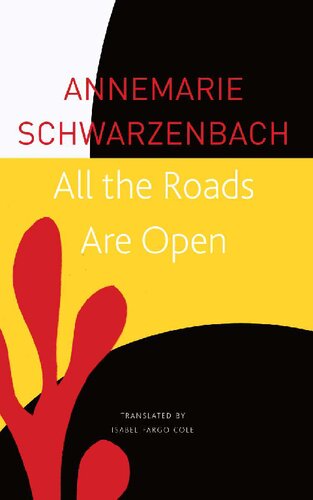

Most ebook files are in PDF format, so you can easily read them using various software such as Foxit Reader or directly on the Google Chrome browser.
Some ebook files are released by publishers in other formats such as .awz, .mobi, .epub, .fb2, etc. You may need to install specific software to read these formats on mobile/PC, such as Calibre.
Please read the tutorial at this link: https://ebookbell.com/faq
We offer FREE conversion to the popular formats you request; however, this may take some time. Therefore, right after payment, please email us, and we will try to provide the service as quickly as possible.
For some exceptional file formats or broken links (if any), please refrain from opening any disputes. Instead, email us first, and we will try to assist within a maximum of 6 hours.
EbookBell Team

4.1
10 reviewsIn June 1939 Annemarie Schwarzenbach and fellow writer Ella Maillart set out from Geneva in a Ford, heading for Afghanistan. The first women to travel Afghanistan’s Northern Road, they fled the storm brewing in Europe to seek a place untouched by what they considered to be Western neuroses. The Afghan journey documented in All the Roads Are Open is one of the most important episodes of Schwarzenbach’s turbulent life. Her incisive, lyrical essays offer a unique glimpse of an Afghanistan already touched by the “fateful laws known as progress,” a remote yet “sensitive nerve centre of world politics” caught amid great powers in upheaval. In her writings, Schwarzenbach conjures up the desolate beauty of landscapes both internal and external, reflecting on the longings and loneliness of travel as well as its grace. Maillart’s account of their trip, "The Cruel Way", stands as a classic of travel literature, and, now available for the first time in English, Schwarzenbach’s memoir rounds out the story of the adventure.
Praise for the German Edition “Above all, [Schwarzenbach’s] discovery of the Orient was a personal one. But the author never loses sight of the historical and social context. . . . She shows no trace of colonialist arrogance. In fact, the pieces also reflect the experience of crisis, the loss of confidence which, in that decade, seized the long-arrogant culture of the West.”—Süddeutsche Zeitungung